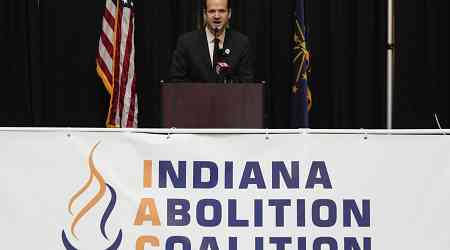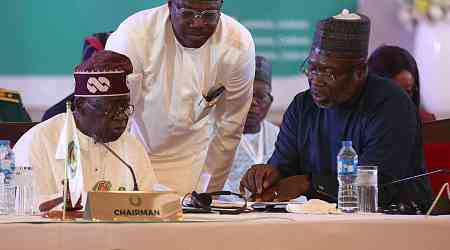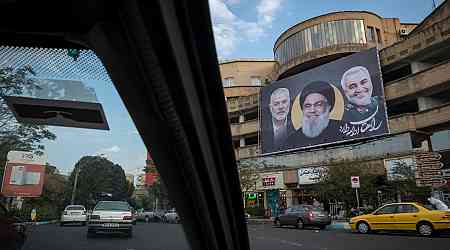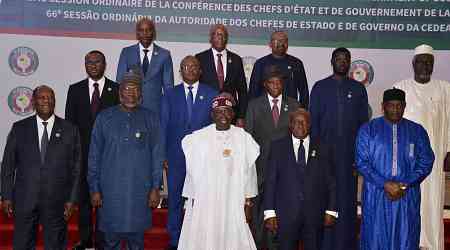
David Bonderman, the founder of private equity firm TPG, and the founding owner of the Seattle Kraken, died on Dec. 11. Bonderman was my mentor, and his passing has led me to reflect on the key lessons I have learned from him.
What’s striking is Bonderman’s willingness to take the time to mentor—not just me, but many others—and leave a profound impact on our lives. I have learned that mentorship doesn’t simply fall into your lap. You must seek it out, hang on tight, and take notes. And then, ultimately, pay it forward by mentoring others.
[time-brightcove not-tgx=”true”]Not all mentors teach the same lessons. I’ve had others help me understand the value of hugging my kids, getting enough rest and exercise, and developing unwavering faith.
But here is what Bonderman taught me that I wanted to share with others.
1. Trust Deeply
I met Bonderman at a urinal in Aspen in 2005. (Yes, really.) It was the basement of the St. Regis hotel, where TPG was holding its annual employee offsite. In the bathroom, Bonderman and a senior partner were discussing Bonderman’s desire to buy the Guanahani hotel in St. Barths. I immediately saw my opening. I later approached the partner and suggested that I help Bonderman with this transaction. I was 26. That moment changed everything for me.
The hotel transaction got done. At the end, Bonderman offered me compensation for my work. I told him I suspected a lot of people owed him favors, but he owed very few. So, instead of a check, I asked for an IOU. He was puzzled but agreed. That conversation was emblematic of Bonderman’s trust in people—and his understanding that relationships are far more valuable than transactions.
2. Hard work will pay off
In 2010, Bonderman encouraged me to move to Hong Kong. He believed Asia presented tremendous opportunities, and he felt it was critical to immerse myself there. Shortly after I arrived, Bonderman visited me. I suggested we meet Jack Ma of Alibaba, and, as always, he agreed. After a full day of meetings in Shanghai, Bonderman and I headed to Hangzhou to visit Ma. Following several hours of conversation, we mentioned our interest in Alibaba shares. At that point, Ma referred us to his CFO, Joe Tsai, who was in Hong Kong. Ma reminded us it was already 9 p.m., but Bonderman didn’t blink. “Great,” he said. “Let’s go.”
At 2:30 a.m., we walked into the Shangri-La in Hong Kong for a meeting with Tsai. By 4 a.m., we had come to an agreement. I couldn’t believe it—Bonderman was willing to fly across continents and stay up all night to make things happen. It was a masterclass in relentless effort and dedication.
3. Be brutally honest
When the World Economic Forum was accepting nominations for its Young Global Leader program, I asked Bonderman for a recommendation. He wrote two sentences: “He’s a decent-enough human. You should consider him.” Meanwhile, another nominee had a glowing letter from Hillary Clinton, practically anointing her as a future President. I told Bonderman his letter stunk and asked if a friend could ghostwrite it on his behalf. He originally agreed but ultimately couldn’t stomach the exaggerated draft that was produced. “I just can’t attach my name to that,” he said. That moment taught me the value of candor over puffery.
4. Think big
From 2010 to 2012, I managed personal capital for Bonderman. It was a great gig, and we had a wonderful run. In 2012, while Bonderman and I were traveling across Asia, he insisted: “It’s time for you to branch out and start your own firm.” He explained that I needed my own brand, team, and a larger pool of capital. While he acknowledged that this move would be financially less attractive for him, he insisted it was the right step for me. Bonderman had little patience for incremental changes. He sought dramatic impact. Yet remarkably, he pursued this with little pretense or arrogance. Bonderman really believed that small thinking leads to small results, but big thinking can change the world.
5. Be Human
Over nearly two decades of friendship and countless hours together, I cannot recall a single time when Bonderman raised his voice, insulted someone, or sought to hurt another for personal gain. Whether he was with a head of state, a Fortune 100 CEO, or a waiter in a restaurant, his quiet confidence put people at ease. It was disarming, and it led to deeper conversations, often filled with laughter. What was most striking, though, was that Bonderman treated everyone with the same respect.
I remember bringing Bonderman to meet a prominent tech founder about a decade ago. The founder was so eager to meet Bonderman that he arranged a high-end chef to prepare an elaborate lunch. But when Bonderman heard about the plans, he asked if they could make a change and suggested they go out for a slice of pizza and a Diet Coke instead. At the pizza joint, the founder launched into a speech about how he could have been a billionaire if he hadn’t succumbed to board pressure and prematurely sold his previous company. This time he was determined things would be different.
About an hour into the conversation, the founder seemed agitated. He had so much regret about his previous sale. Bonderman, mid-bite, with a long strand of melted mozzarella dangling from his chin, looked up and said: “Hey man, billionaire or not, the pizza tastes the same.”




























